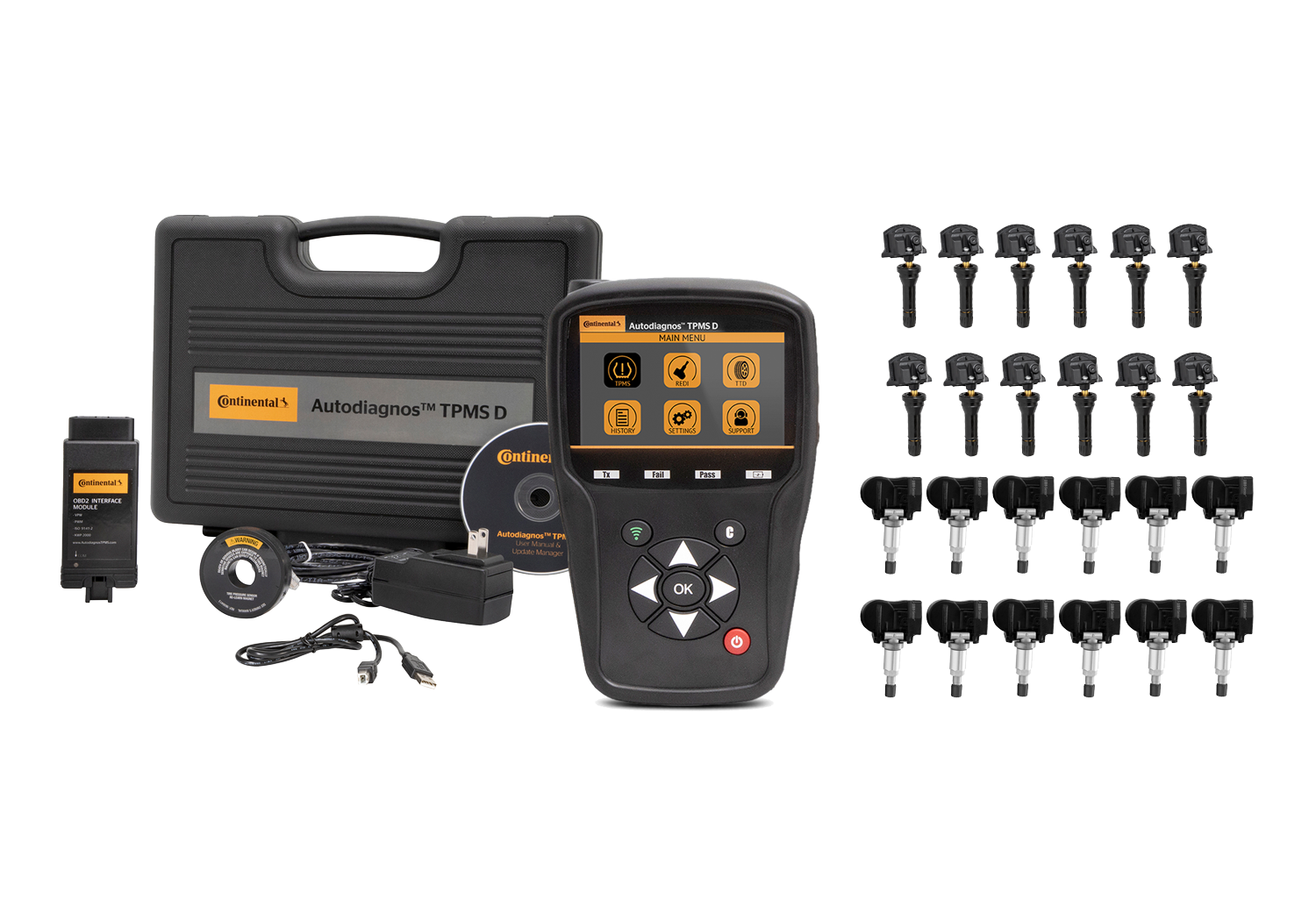
According to Allen Selzer, Continental TPMS Technical Training Specialist and a TIA Certified Automotive Tire Service Instructor, when a customer’s TPMS Telltale/MIL comes on, it can signal a variety of TPMS service issues. So, the best approach is to check the light first and determine the nature of the issue before dismounting any tires or servicing any sensors. By troubleshooting the problem up front, you will be able to identify exactly what type of TPMS service is needed, and in turn save you and your customer a lot of hassles and frustration.
Solid vs flashing light
A TPMS warning light that illuminates solid and remains solid usually means that one or more of the tires has low air pressure and needs to be inflated to the correct placard pressure.
However, a light that flashes for 60-90 seconds and then illuminates solid is signaling that there is a problem with the TPMS system. It is very likely that one or more of the sensors are not communicating with the vehicle. This can be caused by a variety of issues. The flashing light can mean the sensor is damaged, missing, or has a dead battery and needs to be replaced. It can also mean that an incorrect sensor is installed in the tire.
To make sure you service the TPMS systems properly, you need to troubleshoot these potential issues until you find the culprit.
Here are some additional tips to keep in mind when your customer comes in for service:
- Check the Telltale/MIL every time a customer’s vehicle enters your service bay and document the presence of any illuminated or blinking light before performing any work.
- Don’t forget to inspect the spare if it is equipped with a TPMS sensor.

A solid TPMS telltale indicates low tire pressure - While servicing TPMS, visually inspect stems, hex nut, seal, and cap. The recommended best practice is to replace with new service kit.
- Always inform the customer of the benefits of TPMS, regardless of whether it presents a sales opportunity or not.
- Make sure you have a reliable resource you can go to for replacement Sensors, Service Kits, and Relearn procedures for any vehicle. For more information, visit: www.redi-sensor.com
These helpful tips are brought to you as a courtesy of Continental, manufacturer of the REDI-Sensor™ Multi-application TPMS Sensors and one of the industry’s leading innovators of complete Tire Pressure Monitoring Systems, sensors, and service parts.
Continental also offers a free, tech support hot line at 800-265-1818, which you can call for quick, expert help whenever you need it.
